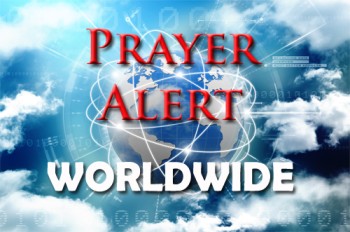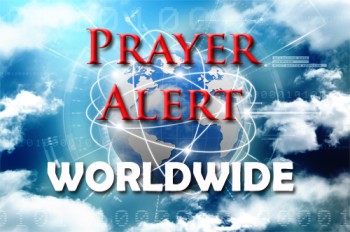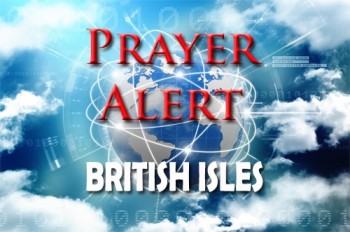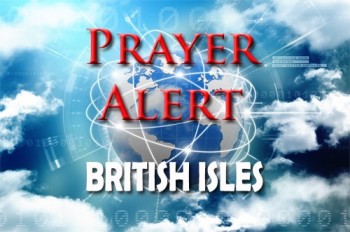Displaying items by tag: poverty
CAP: Government must act
Christians Against Poverty (CAP) is a Christian debt help charity which is calling on the Government to 'act now' and increase support for those on low incomes with everything at its disposal. They saw calls to their debt helpline rise by 47% this January compared to last year, and requests for emergency fuel vouchers have doubled. CAP said, ‘We, along with many other charities and think-tanks, say that the upgrading of Social Security (the amount benefits and pensions go up in April) needs to be more than planned. Also they could pause deductions to Universal Credit as they did at the beginning of the pandemic. The third thing needed is a cost of living review; the level of social security has not matched the actual cost of living, even for the barest of essentials, for many, many years.’
Northern Ireland poverty
A Joseph Rowntree Foundation report published on 16 March tells us that as Northern Ireland entered the pandemic, nearly one in five people lived in poverty, including over 100,000 children. 1 in 14 households are in food insecurity, and the recent spike in energy prices, and wider inflation. People in workless families, disabled people, carers, and people in ethnic minority households have much higher poverty rates. So people across Northern Ireland need the new Executive to focus on whether to reverse or partly mitigate the impact of the £20 per week cut to the basic rates of Universal Credit. It could also match benefit up-rating more effectively to the cost of living. A targeted payment, such as the Scottish child payment, would reduce child poverty. The Executive could also consider the role that DLA/PIP can have in helping disabled people into the labour market, including considering how the administration of payments could be redesigned with dignity and poverty reduction at their heart.
South Africa: challenges relating to foreign nationals
The South Africa Council of Churches (SACC) has launched a national indaba (conference with indigenous tribes) to engage interested parties to find solutions to tensions over foreigners living and working in South Africa. Bishop Mpumlwana said they must create ‘a national process towards a stable national environment where the growing lawlessness over non-South Africans can be addressed before it spills into a broader decline of the rule of law, through “justifiable” acts of public frustration.’ He said that deep poverty gnawing at the lives of the economically excluded majority of South Africans is behind murmurings that ‘non-South Africans are stealing our jobs’ and sporadic acts of brutal violence against foreigners. ‘It is a manifestation of the failure of democratic South Africa to achieve the promise of the post-apartheid South Africa. The failure to achieve this causes a mentality that grips poor communities without hope’. he added.
Afghanistan: extreme poverty and hunger
Extreme hunger is causing parents to sell their kidneys to feed their children. Illegal organ trading existed before the Taliban takeover, but the black market exploded when millions more were plunged into poverty after international sanctions. Currently the UN estimates that 24 million people, 59% of the population, are in need of lifesaving humanitarian aid. ‘I had to do it (sell a kidney) for the sake of my children,’ said 32-year-old Nooruddin, ‘I didn’t have any other option. I regret it now.’ He was speaking outside his home, where clothes hang from a tree and a plastic sheet is a window pane. ‘I can no longer work. I’m in pain and I cannot lift anything heavy.’ The practice is so widespread where Nooruddin lives, that it is nicknamed ‘one kidney village’. Children desperately search through litter for food waste, and shops are closed. People have no money to buy things. Mother-of-three Aziza said, ‘If I don’t sell my kidney, I will be forced to sell my one-year-old daughter.’
Increasing 5G coverage won't 'level up' the struggling
Michael Gove admitted that people in some areas have been ‘overlooked and undervalued’ by Westminster for years. Truro Foodbank is in one of the poorest UK areas; its manager said levelling up won't be effective unless low wages are addressed. Many in Cornwall are not on a national pay structure, so have 23% less pay. They have higher water bills because of the coastal areas and now there are rising utility bills. He said, ‘Financial pressure comes from how much your income is, and what you've got to pay out. 66% of the people receiving foodbank parcels are on low incomes. Levelling up will see 5G mobile data coverage for the “large majority” of households. But this will mean little to struggling households. There’s an expectation that everyone has a smartphone. Those who haven’t are disadvantaged because they can't even make an application for help in the first place.’
Lebanon: elderly in hardship and helpless
11% of Lebanon’s population is over the retirement age (65), and 80% of retired people have no health care coverage. Previously Habeeb and Elham had a good life; they could eat meat, afford medicine and have the lights on. But those times are over. When Habeeb retired their income stopped and now the 80-year-olds face poverty and uncertainty. ‘There is no government pension when you are old, no one is helping. How can we pay our bills?’ asks Habeeb with tears in his eyes. Lebanon has one of the world's worst economic crises. The Lebanese pound has lost 90% of its value since 2019. The banking system crumbled with much of the elderly’s life savings. The young are abandoning Lebanon in search of a more dignified life. Lebanese lack electricity and water, and food and medicine are difficult to import. The aid group Medonations imports medication and provides it to those who need it, and there are a few relief outlets for the vulnerable.
Syria: poverty, but God is working
After a decade of civil war, Syria has at last begun to reconnect with its neighbouring countries, including Lebanon, Jordan, and the UAE. President Assad’s grip on the country is tenuous as areas near the Turkish and Iraqi borders are controlled by rebel groups. Fighting has left Syria in economic ruins; families which used to have more than enough income to provide for themselves are now in poverty because of hyperinflation. A man with cancer did not continue with expensive treatment; it was better that one dies rather than all of them dying. Families without enough food for all their children give lunch to some children lunch and dinner to the others. But God is working. The story of Jesus is reaching new populations; there is a budding movement of the Holy Spirit and churches are forming among the Druze in the south and the Kurds in the north.
Universal Credit and debt
The Universal Credit extra payments helping people through Covid have ended, amid fears that many lives will get worse not better this winter. 29-year-old Lynton Lockett is embarrassed to show people his kitchen. A leaking kitchen tap caused mould on the floor and walls. The dampness has brought an infestation of fruit flies. Lynton showed the kitchen to plumber James Anderson who runs a community initiative called DEPHER CIC that provides free heating and plumbing services to people who can't pay for them. James anticipates a 50% increase in calls for help this winter. He has started giving food parcels to struggling families. He said that the end of payments, the higher cost of living, a rise in gas prices and the end of furlough puts too much financial pressure on families. He added, ‘You can't hide the truth. If this continues, people are going to die.’ See also
Call for an end to the arms trade
Catholic bishops and organisations voiced their opposition to the arms trade, as the UK hosted one of the world’s largest arms fairs on 14-17 September for global governments and military delegations, with over 1,500 companies selling guns, bombs, and other weaponry. A statement from the bishops and other concerned organisations emphasised how conflicts fed by the trade harm the world’s poorest communities, forcing people to become refugees. In 2015 Pope Francis said, ‘Why are deadly weapons being sold to those who plan to inflict untold suffering on individuals and society? Sadly, the answer is simply for money - money that is drenched in blood, often innocent blood. In the face of this shameful and culpable silence, it is our duty to confront the problem and to stop the arms trade.’ Pray for all the voices of those peacefully campaigning against the arms trade to be heard so that leaders commit to ending it in pursuit of peace.
Covid: free school meals in summer holidays
The number of children eligible for free school meals in England has risen since the start of the pandemic. The holidays have begun, and over one in five pupils are eligible. Unlike last summer, the Government is not directly funding vouchers or food packages this year. Free school meals have traditionally been provided only in term time. But many councils have decided to create their own meal schemes during the holiday - not trusting parents with cash payments. These programmes will cover four hours a day, four days a week, but nothing for the other three days. They will be offered free to all children eligible for free school meals. Other children may still get places, but not for free. Pray for children who may have missed out on direct payments turning up at school hungry and with no money or food.









